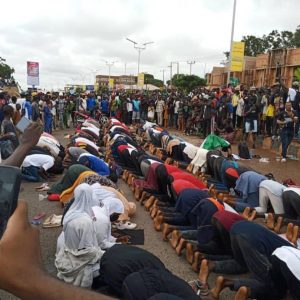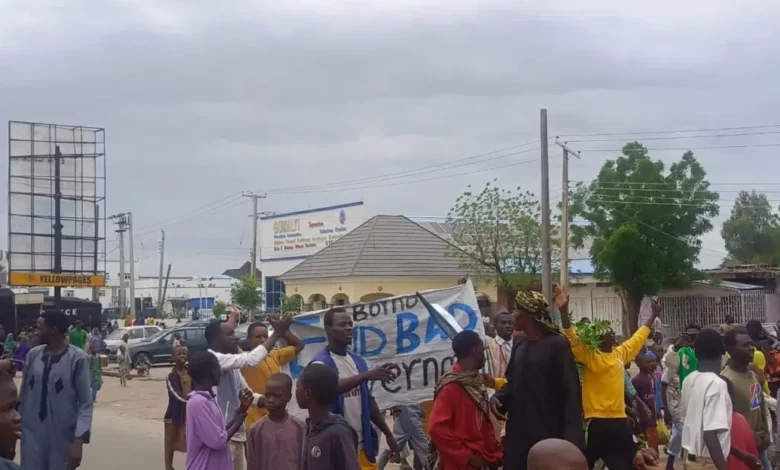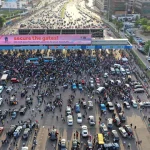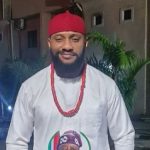As citizens of the most populous black nation move to the streets to protest the consistent bad governance given the political leaders of the country, several states in the country have joined the protest, which has so far been peaceful, with a few incidents of violence in the northern part of the Nation.
Abuja
In an early morning report by the newsmen, protesters converged at Eagle Square, where the police used tear gas to disperse over a thousand protesters who trooped out peacefully. It was learnt that the Eagles, the square before the arrival of the protesters, was under lock and key while security agents blocked the entrance station with different military hardware.
Other categories of protesters had also converged at the Moshood Abiola National Stadium in Abuja, the nation’s capital, led by Deji. They explained that their reasons for restricting the demonstration to the stadium were in line with the court order that had restricted the protest to the facility.
At about noon on Thursday, the protesters who initially respected the court order defiled security prevention to match Eagles Square. At about midnight on Wednesday, August 30th, Justice Sylvanus Oriji of the High Court of the Federal Capital Territory, FCT, issued an ex-parte order restricting Abuja protesters to the National Stadium, now renamed the MKO Abiola Stadium.
The situation at the FCT is relatively calm. However, heavily armed security personnel have been seen at all flash points in the capital.
A journalist from Premium Times, Yakubu Mohammed, was attacked by the police, injuring his head.
Lagos
From Lagos, in the early hours of August 1, no protester was seen at the Lekki toll gate, an area suspected to be the meeting point of protesters in the state. The protest gathered at the Ikeja under the bridge, where the procession started. The protesters chanted different solidarity songs heading towards Ojota.
The protesters were accompanied by heavily armed security personnel. A court injunction in the state restricted the protesters from protesting in different parts of the state. It was announced that the court injunction restricted the process to the freedom and peace parks in Ojota and Ketu, respectively.
Kanu
Kanu state witnessed the first instance of looting during the protest. The protesters who trooped out in the morning comprised women, children and elderly men. The protesters marched through the capital city and broke in the under-construction Nigeria Communication Commission (NCC) Industrial Park in Kano.
The youths were seen looting all fully fitted industrial parks, and the police had fired tear gas and shot bullets at the protesters who ran for safety; the governor of the state, Abba Yusuf, had endorsed the protest a day before, noting that political office holders in the state were planning to hijack the process. The governor had also pledged to join the protest.
Borno
The police in Borno state had declared a 24-hour curfew after the protest in the state went violent. The first instance was the marketplace bombing in Kauri, a rural community in the Konduga of the state. A suicide bomber denoted the bomb, killing more than one person.
During the protest, an exchange between the security agents and the protest resulted in the death of one protester who was shot by the police. A correspondent from News Central confirmed the incident. He noted the protest began in the state, but after some time, the police shot one individual.
The state government so far has not made a public statement about the bomb incident and the clash with protesters; it was learnt that security agencies have begun the enforcement of the 24-hour curfew in the state.
Gombe
In Gombe state, the protesters who trooped out in the morning destroyed the billboards carrying the inscription with the president’s name mounted around the state capital. The protesters chanted anti-government songs seeking for the return of the fuel subsidy.
The angry protesters went to the government house and threw stones at the gate. The police public relations officer in the state, ASP Buhari Abdullahi, confirmed the violent incident, noting that the security agencies in the state are doing their best to calm the situation.
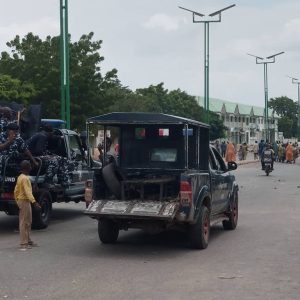
Earlier, before the protest on Wednesday, state governor Muhammadu Yahaya held a meeting with critical stakeholders, where they promised not to protest. However, angry citizens took to the streets on Thursday to demand better governance for the residents.
Gombe
In Ogun state, it was the case of law turnout by residents; in the metropolis, residents were seen going about their normal daily activities, banks in the state capital were all looked for the case of unknown, the protests in an earlier court injunction were restricted to only MKO Stadium, Abeokuta; Ansar-ud-Deen Comprehensive High School, Ota; Remo Divisional High School, Sagamu; and Dipo Dina Stadium, Ijebu-Ode.
At about 11 am, the protesters, with different placards, arrived at the stadium, with some placards reading “We are after peace and progress of Nigeria, “Food inflation is killing us, “Dapo Abiodun fixes Ogun State roads”.
Jos
Jos Plateau state presented a great sign of unity between the protesters who trooped out at the metropolis on Thursday morning; the protesters were joined by Prophet Isa El-Buba and former Minister of Youth and Sports Solomon Dalung, who marched around the streets of the state capital.
The highlight of the peaceful protest exercise was when Christian protesters joined hands on the street to protect the Muslim brothers to observe their afternoon prayer; the protest grounds were filled with happiness as the residents chanted around the streets and demanded better governance from the state and federal governments.
